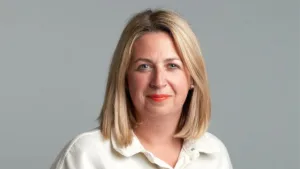By Felicity Bowen, Group Digital Strategy Director and Joe Wood, Strategy Director at Spark Foundry
Even as lockdown eases, people and businesses face huge uncertainty. However, one thing’s for sure: when the lockdown ends, people will want to escape for a well-earned break…
When people do start looking for their escape, there’s a good chance that they’ll look to remain within these fair isles. This will be in large part down to the gradual easing of international travel restrictions. But the tendency to holiday domestically will likely extend beyond the length of any given restriction.
Even before COVID-19, forecasts for domestic holidays in the UK were positive, with 2.5% growth predicted. One reason for this, according to Mintel, was that of uncertainty, with Brexit, exchange rates and the high-profile collapse of TUI all cited as reasons for holidaying closer to home. The unfolding pandemic adds uncertainty upon uncertainty, heightening consumer caution and likely accelerating this growth of the domestic holiday. Travellers are more comfortable with staycations, as they are familiar with the location, can avoid flying, and know the health service. Whilst there isn’t a directly comparable situation, data from the 2008 financial crash saw the domestic holiday market grow 5% when consumer confidence was low and household finances were squeezed.
What will people look for when choosing to take a domestic break?
Pre-COVID-19, the top two characteristics UK consumers looked for in a holiday were ‘quiet and relaxation’ (44%) and ‘spending time with family and friends’ (42%) (Foresight Factory). When we look specifically at the reasons for taking a domestic holiday, ‘exploring new places’ came out top (54%), followed by ‘ease of last-minute booking’ (35%) (Mintel).
Post-COVID-19, it is predicted that ‘staycations’ will evolve, with a tendency towards more remote settings and standalone accommodation. Host Unusual Director, Alex Wilson, says “The key words here are ‘isolation’ and ‘exclusivity’, away from crowds.” With a swell in domestic tourism, we are likely to see over-tourism in some places, with popular tourist hotspots overcrowded.
How can brands adapt communication strategies for this new landscape?
- Build desire during lockdown, while people are dreaming of holidays. Travel companies such as Kayak have produced VR experiences, to build desire for travel, and showcase destinations during lockdown. Advertisers should encourage saving to a wish list or Pinterest board, so properties can be revisited later in the year; and ensure data collection is setup for retargeting later in the year.
- Have comms ready for when dreaming turns to booking: search trends and social media will be the first signal that interest is turning into action. Retarget those who interacted with your brand during lockdown, along with those who had to cancel stays during the pandemic.
- Consider phasing: Verizon’s research shows that events are a key driver of short break hotel bookings. Given that events for the foreseeable future are cancelled or postponed, it’s important to identify other triggers for booking short breaks. It could be that, now we’re able to meet in groups of six, albeit at a distance, the August bank holiday could play an elevated role in the holiday decision-making process.
- Develop messaging to convey ‘risk-free adventure’: discovery and spontaneity are key drivers for people choosing to take a domestic break. However, given the uncertainty unleashed by COVID-19, consumers will seek reassurance through last-minute deals, free cancellation, and flexibility.
What about for non-Travel brands?
- Consider holiday hotspots. With holidaymakers likely to be limiting their travel to the UK, we could see changes in where media is consumed. OOH will become a great opportunity, with consumer numbers swelling in key tourist hotspots and travel hubs. Continued social distancing will see more people driving, giving advertisers opportunities around key roadside locations and targeted digital audio.
- Play on British heritage and community. The current situation will only increase people’s connection to local communities. In times of adversity, people focus on what might be considered ‘traditional’ values: family, the home, patriotism, localism all come to the fore. We saw the same pattern in the West following 9/11 and the 2008 crash. This presents an opportunity for brands – whether you have heritage in the country, or work closely with local groups, now is the time to dial up British credentials.
Despite the challenging circumstances we now find ourselves in, domestic holidays will prove a priority for consumers as the country emerges from Lockdown. Never before will the benefits of a holiday have been so sorely needed by so many. However, consumer decision making will be dictated by one thing more than anything else – uncertainty. Using communications to remedy this, providing reassurance and conveying reliability will help deliver competitive advantage.








